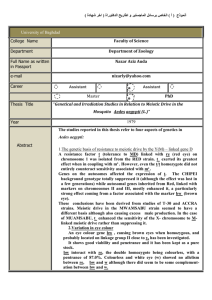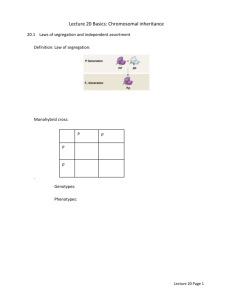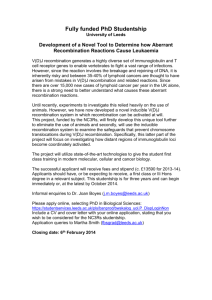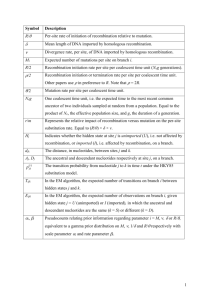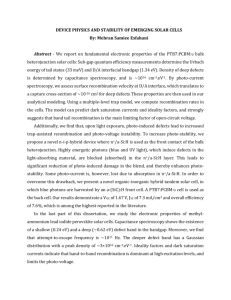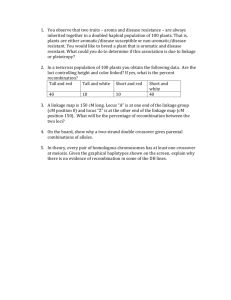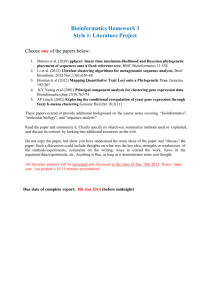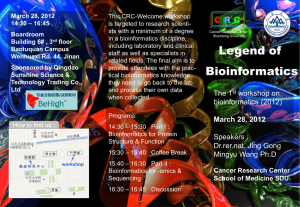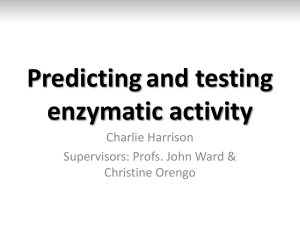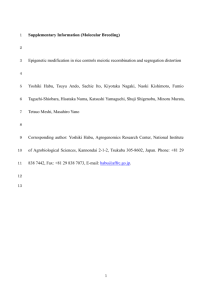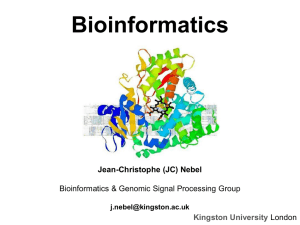comrec
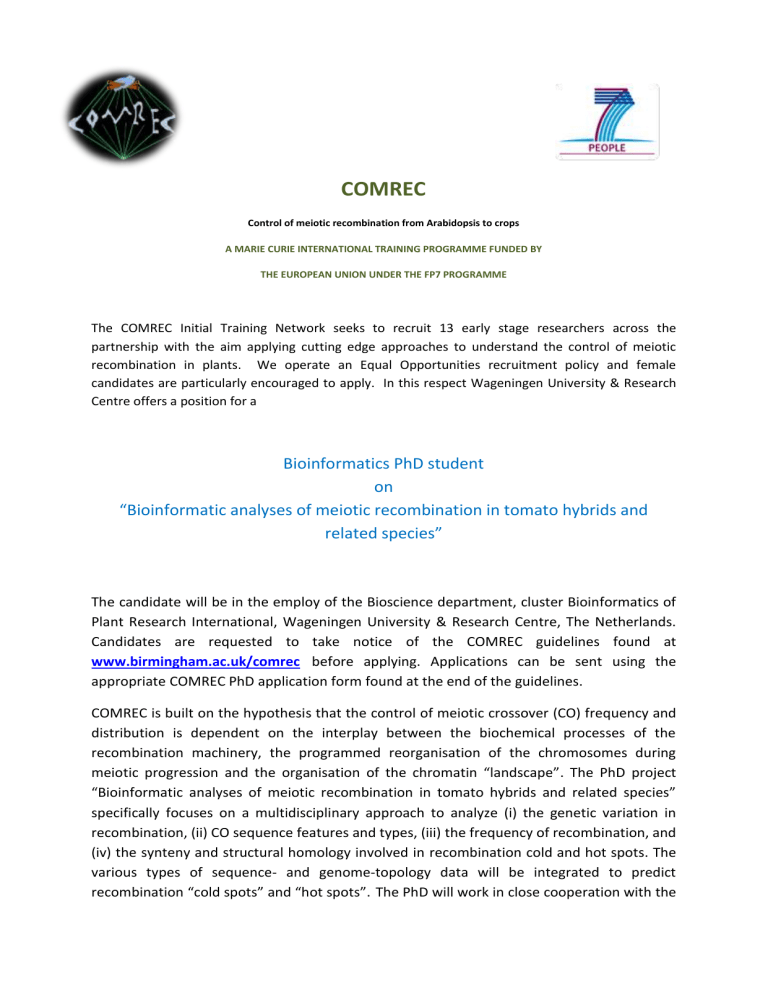
COMREC
Control of meiotic recombination from Arabidopsis to crops
A MARIE CURIE INTERNATIONAL TRAINING PROGRAMME FUNDED BY
THE EUROPEAN UNION UNDER THE FP7 PROGRAMME
The COMREC Initial Training Network seeks to recruit 13 early stage researchers across the partnership with the aim applying cutting edge approaches to understand the control of meiotic recombination in plants. We operate an Equal Opportunities recruitment policy and female candidates are particularly encouraged to apply. In this respect Wageningen University & Research
Centre offers a position for a
Bioinformatics PhD student on
“Bioinformatic analyses of meiotic recombination in tomato hybrids and related species”
The candidate will be in the employ of the Bioscience department, cluster Bioinformatics of
Plant Research International, Wageningen University & Research Centre, The Netherlands.
Candidates are requested to take notice of the COMREC guidelines found at www.birmingham.ac.uk/comrec before applying. Applications can be sent using the appropriate COMREC PhD application form found at the end of the guidelines.
COMREC is built on the hypothesis that the control of meiotic crossover (CO) frequency and distribution is dependent on the interplay between the biochemical processes of the recombination machinery, the programmed reorganisation of the chromosomes during meiotic progression and the organisation of the chromatin “landscape”. The PhD project
“Bioinformatic analyses of meiotic recombination in tomato hybrids and related species” specifically focuses on a multidisciplinary approach to analyze (i) the genetic variation in recombination, (ii) CO sequence features and types, (iii) the frequency of recombination, and
(iv) the synteny and structural homology involved in recombination cold and hot spots. The various types of sequence- and genome-topology data will be integrated to predict recombination “cold spots” and “hot spots”.
The PhD will work in close cooperation with the
other PhDs appointed in the COMREC programme. The position requires a researcher holding at least a Bachelor degree in Bioinformatics or a related discipline in computer science or the life sciences with proven affinity with the topic of the PhD project.
In addition to the general programme description and required knowledge, skills, qualifications and experience, which can be found at www.birmingham.ac.uk/comrec , we encourage candidates meeting the following profile to apply:
Having knowledge of and demonstrable experience in a UNIX environment;
Proven proficient in programming (Python or Perl) and knowledge of applied statistics (R);
Having knowledge of or interest in machine-learning;
Appropriate knowledge of molecular biology (a good understanding of biological processes underlying meiotic recombination and knowledge of plant genomics is a pro);
Proficient in processing Next Generation Sequencing (NGS) data;
Understanding basic ChIP-seq principles;
Having excellent communication skills and a team player.
We offer a position in a young, dynamic and driven bioinformatics group, focusing on computational challenges in a range of comparative and functional genomics related topics; a state-of-the art computational infrastructure; close collaboration with laboratory experts in metabolomics, proteomics and DNA sequencing. Moreover, COMREC will organize a series of meetings and courses to train researchers in the various disciplines required for the project.
The position is available for four years, full time. Maximum gross salary will be according to
Brussels rate 38,000 Euros per annum, to be modified by the EC country coefficient depending on the host country.
Information: For more information about this position, please contact dr. ir. Sander Peters,
Senior scientist Applied Bioinformatics, Department of Bioscience, Plant Research
International, +31-317-481123 , sander.peters@wur.nl
, or dr. Gabino Sanchez-Perez, Cluster leader Applied Bioinformatics, Department of Bioscience, Plant Research International, +31-
317-481742, gabino.sanchezperez@wur.nl
, or prof. dr. ir. Dick de Ridder, head of
Bioinformatics Group, Wageningen University & Research Centre, +31-317-484074, dick.deridder@wur.nl
.
